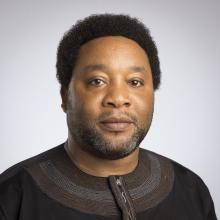Artificial Intelligence assisted echocardiography to facilitate optimal image extraction for congenital heart defects diagnosis in Sub-Saharan Africa (CHD AI)

Research Project

1U01HL172179-01

Sub-Saharan Africa (SSA) accounts for over 50% of all global under-5 deaths. Congenital anomalies (CAs), notably congenital heart defects (CHD) which constitutes about a third of all (CAs), are a major contributor to this high under-5 morbidity and mortality in SSA. Late and missed diagnosis, owing to the lack of experts who can perform an echocardiography scan, remains the primary challenge to CHD diagnosis and care in SSA. Recently, there have been increased uptake CHD screening in newborns by pulse oximetry. However, the test is nonspecific and still requires expert confirmation through echocardiography. The few expert paediatric cardiologist centres that exist are often located hundreds of kilometers away from the birthing centres, placing enormous financial and physical burden on parents who must undertake this journey to confirm their baby's diagnosis, and not leaving out the particularly fragile and vulnerable neonate who may end up dying in the course of the journey. Training programs have been demonstrated to improving image capture and recognition of the anomaly. However, such programs are labor and time intensive and need to be repeated with staff turnover. A complementary strategy is therefore needed to improve and sustain the gains from training. In line with the DSI-Africa's mission to address critical health gaps through the application of data science, our proposed project seeks to leverage modern advances in data science and artificial intelligence (AI) to address the problem of CHD diagnosis in SSA by creating the possibility for low skilled sonographers to conduct an echocardiography scan for neonates (0-28 days) and extract optimal images that can be subsequently transmitted to a remote expert for interpretation. This means local non-experts (e.g GPs, nurses, midwives) serving the birthing centres will now be able conduct postnatal echocardiography scans for neonates suspected of having a CHD after pulse oximetry screening, allowing them to obtain optimal labelled images/video clips that can be transmitted to a remote expert for diagnosis confirmation. This will remove the burden and risk of travelling hundreds of kilometers, increase early diagnosis and initiation of care remotely, and reduce the workload on the few available experts. Future steps will include extending to prenatal diagnosis and predicting actual diagnosis.

